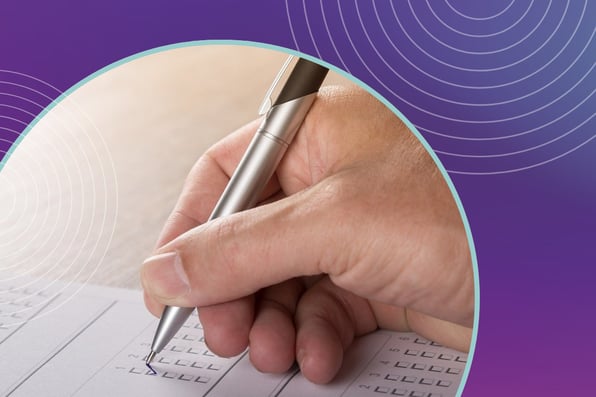How DME Impacts CAHPS Scores and Why It Matters for Hospices
- By Admin |

Your Consumer Assessment of Healthcare Providers and Systems (CAHPS) score can have a massive impact on your hospice's success. While various factors contribute to your overall CAHPS score, your durable medical equipment (DME) management carries a lot of weight.
In this article, we'll explore how DME impacts CAHPS scores and how you can improve your hospice's ratings by prioritizing quality DME management.
Why CAHPS Scores Matter for Hospices
CAHPS scores offer a scientific way to assess patient experiences with various healthcare providers, including hospices. High CAHPS scores on the CAHPS survey indicate positive patient experiences with a hospice, while low ones mean the opposite.
Low CAHPS ratings can negatively impact your hospice's reputation and reduce the funding it receives. For instance, in 2020, healthcare providers with high CAHPS scores received significant financial support from the Centers for Medicare and Medicaid Services (CMS) to the tune of $1.9 billion. In contrast, those with exceptionally low scores incurred stiff financial penalties. You can't afford to ignore your hospice's CAHPS score.
How DME Affects Patient and Caregiver Experiences
Hospice patients need DME to perform various tasks. That said, here are various ways poor DME quality and service can impact patient care and perception:
Reduced Patient Safety
Patients in palliative care are more susceptible to falls than the general population. In fact, falls are the third most common safety risk in palliative care in-patient settings. Using poor-quality or damaged DME can increase the risk of falls. For instance, using a wheelchair with faulty brakes or loose components can jeopardize a patient's safety.
Limited Patient Independence
Many hospice patients want autonomy. The absence of DME or low-quality DME curtails their freedom. For example, without mobility aids like canes, wheelchairs, or scooters, patients can't move about easily or perform tasks independently. This increases their dependence on caregivers.
Reduced Patient Comfort
Low-quality DME can cause extreme patient discomfort. For instance, sitting in an uncomfortable wheelchair for long spells can cause severe physical pain. Worse still, it can lead to mental health issues like depression, which affects patients in hospice and palliative care settings nearly four times more than the general population.
Lower Patient Satisfaction
Inefficient DME services, such as lengthy ordering processes, can delay patients receiving their DME. Delays in receiving the right equipment can cause disruptions in patient care and lead to low patient satisfaction with DME service.
Linking Timely, Reliable DME with Higher CAHPS Scores
The CAHPS Hospice Survey has 47 standardized questions. Of the 47 questions, 40% are directly influenced by DME services and equipment quality. This means offering reliable, high-quality DME can significantly improve your hospice's CAHPS scores.
Choosing the right DME partner can help you boost your CAHPS scores. At Qualis, we have helped our clients score an average of 4% higher than their national and state peers on the CAHPS survey. Nine out of ten of our clients boast CAHPS scores higher than the national average due to our dedication to providing reliable DME management services focused on quality patient care.
Strategies to Improve CAHPS Scores Through DME Management
Boosting your CAHPS scores can be a boon for your hospice. If you want to lay the foundation for hospice CAHPS improvement, be sure not to ignore the DME impact on CAHPS scores. Here are ways to increase your rating with DME management:
Deliver Equipment Promptly
Late DME deliveries can lead to decreased patient and caregiver satisfaction and increase risks to patients' safety. These issues can lower CAHPS scores. Partnering with a reliable DME management company can expedite deliveries and prevent these issues.
At Qualis, we have a wide network of over 900 DME vendors, so rest assured you won't experience delays when you partner with us.
Provide Quality Equipment
The CAHPS Hospice survey asks caregivers to report whether their family members received help for pain. If your hospice provided poor-quality equipment, such as uncomfortable wheelchairs, you might receive unfavorable scores on this focus area.
Partnering with a reputable DME management company can ensure you provide patients with quality equipment. At Qualis, we only work with Medicare-approved DME vendors, so you won't have to worry about receiving substandard equipment.
Offer Caregiver Training
The CAHPS Hospice survey also asks family caregivers to report whether hospice teams provided them with the necessary training to care for their loved ones. Providing staff training is essential if you want high CAHPS scores.
At Qualis, our team prioritizes clinical education by providing hospice staff with various evidence-based clinical tools to help them stay abreast of DME best practices while delivering quality patient care.
Elevating Care Standards with a Focus on DME
The DME service you choose for your hospice plays a pivotal role in your CAHPS score. Working with a DME partner that delivers equipment promptly, offers quality equipment, and provides caregiver training can positively impact your CAHPS rating. The result? Happier clients and higher revenue. That's a win-win for your hospice and patients.
Ready to improve your hospice satisfaction rating? Contact us to discover how Qualis can help boost your CAHPS scores with reliable DME management.

.webp?width=800&height=800&name=CAHPS-Whitepaper_Download%20(2).webp)


